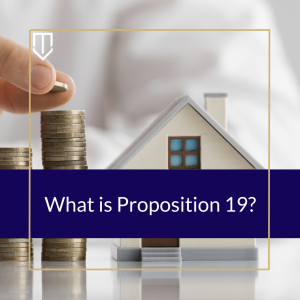 Proposition 19 is a new law in California that significantly affects the way property taxes are assessed on homes when deeded to heirs. While intra-family transfers were previously protected under Proposition 13, its effect has been significantly bludgeoned. On the other hand, Proposition 19 does include the added benefit of extra assessment transfers for residents over the age of 55.
Proposition 19 is a new law in California that significantly affects the way property taxes are assessed on homes when deeded to heirs. While intra-family transfers were previously protected under Proposition 13, its effect has been significantly bludgeoned. On the other hand, Proposition 19 does include the added benefit of extra assessment transfers for residents over the age of 55.
What are “ad valorem” taxes?
Prop 13 and Prop 19 are centered on “ad valorem” property taxes. “Ad valorem” is simply Latin for “according to value.” As such, ad valorem property taxes are just ordinary property taxes. They are a tax levied by the state government against owners of real property on a year-to-year basis.
 California Partition Law Blog
California Partition Law Blog


 In every property co-owned by two or more persons, there are common costs. Common costs are those costs for the property that are common to all owners or for the common benefit of all owners. In California, cotenants are required to pay for their portion of the common costs. Therefore, cotenants must pay for their share of expenses to operate and maintain the property. The portion of common costs one must pay depends on the ownership interest of that cotenant.
In every property co-owned by two or more persons, there are common costs. Common costs are those costs for the property that are common to all owners or for the common benefit of all owners. In California, cotenants are required to pay for their portion of the common costs. Therefore, cotenants must pay for their share of expenses to operate and maintain the property. The portion of common costs one must pay depends on the ownership interest of that cotenant.